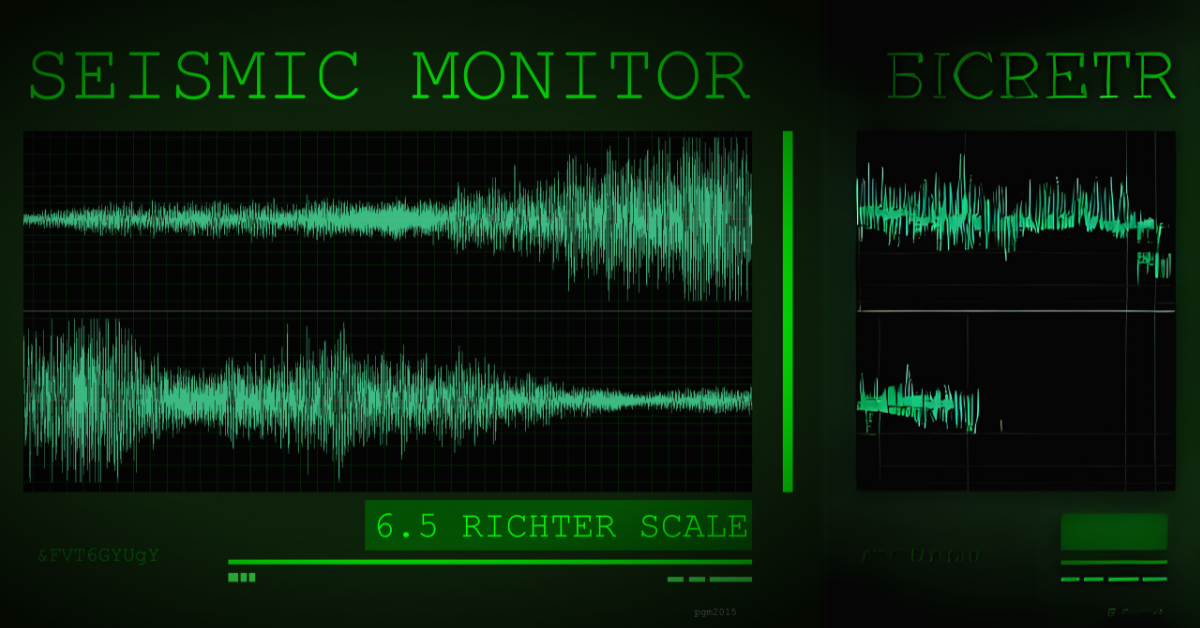
Level 6 Diploma in Seismic Data Interpretation for Oil Exploration
- Expertise in Seismic Interpretation: Gain in-depth knowledge of seismic data interpretation, one of the most critical skills in oil exploration.
- Hands-On Experience: Learn practical techniques for processing and analyzing seismic data using industry-standard software and tools.
- Career Advancement: Enhance your career in the oil and gas sector with a highly sought-after specialization in seismic interpretation.
- Real-World Application: Apply seismic data analysis to real-world oil exploration scenarios, optimizing drilling and exploration decisions.
- Industry Recognition: This diploma is recognized globally by companies in the oil and gas exploration sector.
- Interpret seismic data and integrate it into oil exploration decision-making processes.
- Understand the principles of seismic surveying and its role in identifying subsurface structures and hydrocarbons.
- Use seismic processing techniques to enhance the quality and resolution of seismic data.
- Analyze complex seismic data to identify potential drilling sites and map subsurface geological features.
- Apply advanced seismic data processing software and tools to support interpretation tasks.
- Develop strategies for optimizing oil exploration projects using seismic data insights.
- Introduction to Seismic Data and Oil Exploration
- Overview of seismic data in the context of oil exploration.
- Basic concepts of seismic waves, reflection, refraction, and geophysical principles.
- Seismic Surveying Techniques
- Methods of seismic data acquisition, including reflection and refraction seismic surveying.
- Seismic fieldwork, data collection methods, and the equipment used in seismic surveys.
- Seismic Data Processing and Quality Enhancement
- Techniques for processing seismic data, including filtering, noise reduction, and data enhancement.
- Methods for improving the resolution and accuracy of seismic datasets.
- Seismic Interpretation Fundamentals
- Basic principles of seismic interpretation, including horizon picking, fault mapping, and seismic facies analysis.
- Identifying key geological features such as faults, anticlines, and synclines.
- Advanced Seismic Data Interpretation Techniques
- Using advanced interpretation methods to identify subsurface oil and gas reservoirs.
- Integrating seismic data with well log data, geological models, and production data.
- Seismic Inversion and 3D Imaging
- Introduction to seismic inversion techniques for converting seismic data into rock properties.
- Application of 3D seismic imaging and its role in oil exploration.
- Structural Geology and Seismic Analysis
- Understanding subsurface structures and their implications for oil exploration.
- Analyzing faults, folds, and other structural features using seismic data.
- Seismic Data Integration and Decision-Making
- Integrating seismic data with other geological, geophysical, and petrophysical information.
- Making exploration decisions based on seismic data analysis.
- Software Tools for Seismic Interpretation
- Hands-on training in seismic interpretation software (e.g., Petrel, Kingdom Suite).
- Practical exercises in interpreting seismic sections, maps, and volumes.
- Case Studies in Seismic Data Interpretation
- Real-world examples of seismic interpretation in oil exploration.
- Analyzing successful exploration projects and lessons learned from seismic data analysis.
- Seismic Data Interpreter
- Geophysicist
- Exploration Geologist
- Reservoir Engineer
- Oil and Gas Exploration Analyst
- Geophysical Consultant
- Comprehensive Curriculum: The course offers a complete package of theoretical knowledge and practical applications in seismic data interpretation.
- Experienced Instructors: Learn from industry experts with years of experience in seismic data analysis and oil exploration.
- Cutting-Edge Tools: Gain hands-on experience with the latest seismic interpretation software and tools used in the industry.
- Real-World Case Studies: Learn through case studies of successful exploration projects, enhancing your practical understanding of seismic data interpretation.
- Global Recognition: This diploma is globally recognized in the oil and gas exploration sector, providing excellent career opportunities worldwide.
Study Units
- Introduction to Seismic Data and Oil Exploration
- Overview of seismic data in the context of oil exploration.
- Basic concepts of seismic waves, reflection, refraction, and geophysical principles.
- Seismic Surveying Techniques
- Methods of seismic data acquisition, including reflection and refraction seismic surveying.
- Seismic fieldwork, data collection methods, and the equipment used in seismic surveys.
- Seismic Data Processing and Quality Enhancement
- Techniques for processing seismic data, including filtering, noise reduction, and data enhancement.
- Methods for improving the resolution and accuracy of seismic datasets.
- Seismic Interpretation Fundamentals
- Basic principles of seismic interpretation, including horizon picking, fault mapping, and seismic facies analysis.
- Identifying key geological features such as faults, anticlines, and synclines.
- Advanced Seismic Data Interpretation Techniques
- Using advanced interpretation methods to identify subsurface oil and gas reservoirs.
- Integrating seismic data with well log data, geological models, and production data.
- Seismic Inversion and 3D Imaging
- Introduction to seismic inversion techniques for converting seismic data into rock properties.
- Application of 3D seismic imaging and its role in oil exploration.
- Structural Geology and Seismic Analysis
- Understanding subsurface structures and their implications for oil exploration.
- Analyzing faults, folds, and other structural features using seismic data.
- Seismic Data Integration and Decision-Making
- Integrating seismic data with other geological, geophysical, and petrophysical information.
- Making exploration decisions based on seismic data analysis.
- Software Tools for Seismic Interpretation
- Hands-on training in seismic interpretation software (e.g., Petrel, Kingdom Suite).
- Practical exercises in interpreting seismic sections, maps, and volumes.
- Case Studies in Seismic Data Interpretation
- Real-world examples of seismic interpretation in oil exploration.
- Analyzing successful exploration projects and lessons learned from seismic data analysis.
Upon completion of this diploma, learners will be able to:
- Interpret seismic data and integrate it into oil exploration decision-making processes.
- Understand the principles of seismic surveying and its role in identifying subsurface structures and hydrocarbons.
- Use seismic processing techniques to enhance the quality and resolution of seismic data.
- Analyze complex seismic data to identify potential drilling sites and map subsurface geological features.
- Apply advanced seismic data processing software and tools to support interpretation tasks.
- Develop strategies for optimizing oil exploration projects using seismic data insights.
The Level 6 Diploma in Seismic Data Interpretation for Oil Exploration is specifically designed for professionals in the oil and gas industry who want to develop advanced expertise in seismic data interpretation. This course is ideal for:
Seismic Data Interpreters
Professionals responsible for analyzing seismic data to identify subsurface structures and potential hydrocarbon deposits, optimizing exploration strategies, and supporting drilling decisions.
Geophysicists
Experts in the physical properties of the Earth who apply seismic data to understand subsurface features and identify viable drilling locations.
Exploration Geologists
Geologists working in oil exploration, using seismic data to map geological formations, assess potential drilling sites, and identify oil and gas reserves.
Reservoir Engineers
Engineers who use seismic data to study reservoir characteristics, determine the most efficient extraction methods, and optimize production strategies.
Oil and Gas Exploration Analysts
Professionals analyzing exploration data, evaluating seismic data, and contributing to decision-making in exploration and drilling projects.
Geophysical Consultants
Consultants providing expert advice on the interpretation of seismic data, geological modeling, and exploration strategies to oil and gas companies.
Petroleum Engineers
Engineers looking to understand how seismic data can enhance exploration and drilling processes to improve the overall success of oil projects.
Geoscientists in the Oil & Gas Sector
Individuals who seek to enhance their technical knowledge of seismic analysis and integrate this expertise into geophysical, geological, or engineering roles within the industry.
Our assessment process is designed to ensure every learner achieves the required level of knowledge, skills, and understanding outlined in each course unit.
Purpose of Assessment
Assessment helps measure how well a learner has met the learning outcomes. It ensures consistency, quality, and fairness across all learners.
What Learners Need to Do
Learners must provide clear evidence that shows they have met all the learning outcomes and assessment criteria for each unit. This evidence can take different forms depending on the course and type of learning.
Types of Acceptable Evidence
Assignments, reports, or projects
Worksheets or written tasks
Portfolios of practical work
Answers to oral or written questions
Test or exam papers
Understanding the Structure
Learning outcomes explain what learners should know, understand, or be able to do.
Assessment criteria set the standard learners must meet to achieve each learning outcome.
Assessment Guidelines
All assessment must be authentic, current, and relevant to the unit.
Evidence must match each assessment criterion clearly.
Plagiarism or copied work is not accepted.
All learners must complete assessments within the given timelines.
Where applicable, assessments may be reviewed or verified by internal or external quality assurers.
Full learning outcomes and assessment criteria for each qualification are available from page 8 of the course handbook.
Top Courses
Related Courses
Let's Get in touch
Deleting Course Review
Course Access
This course is password protected. To access it please enter your password below:



